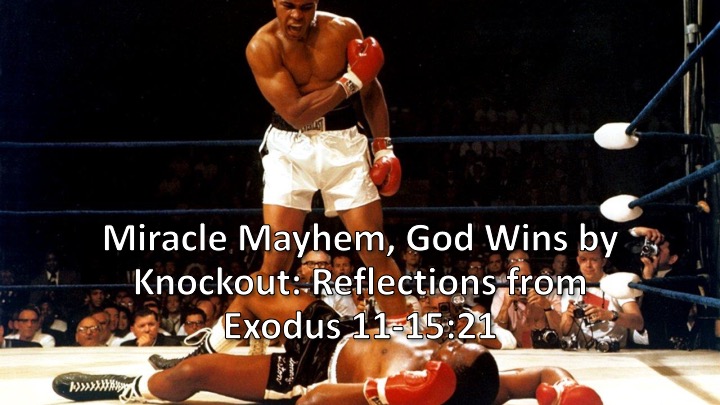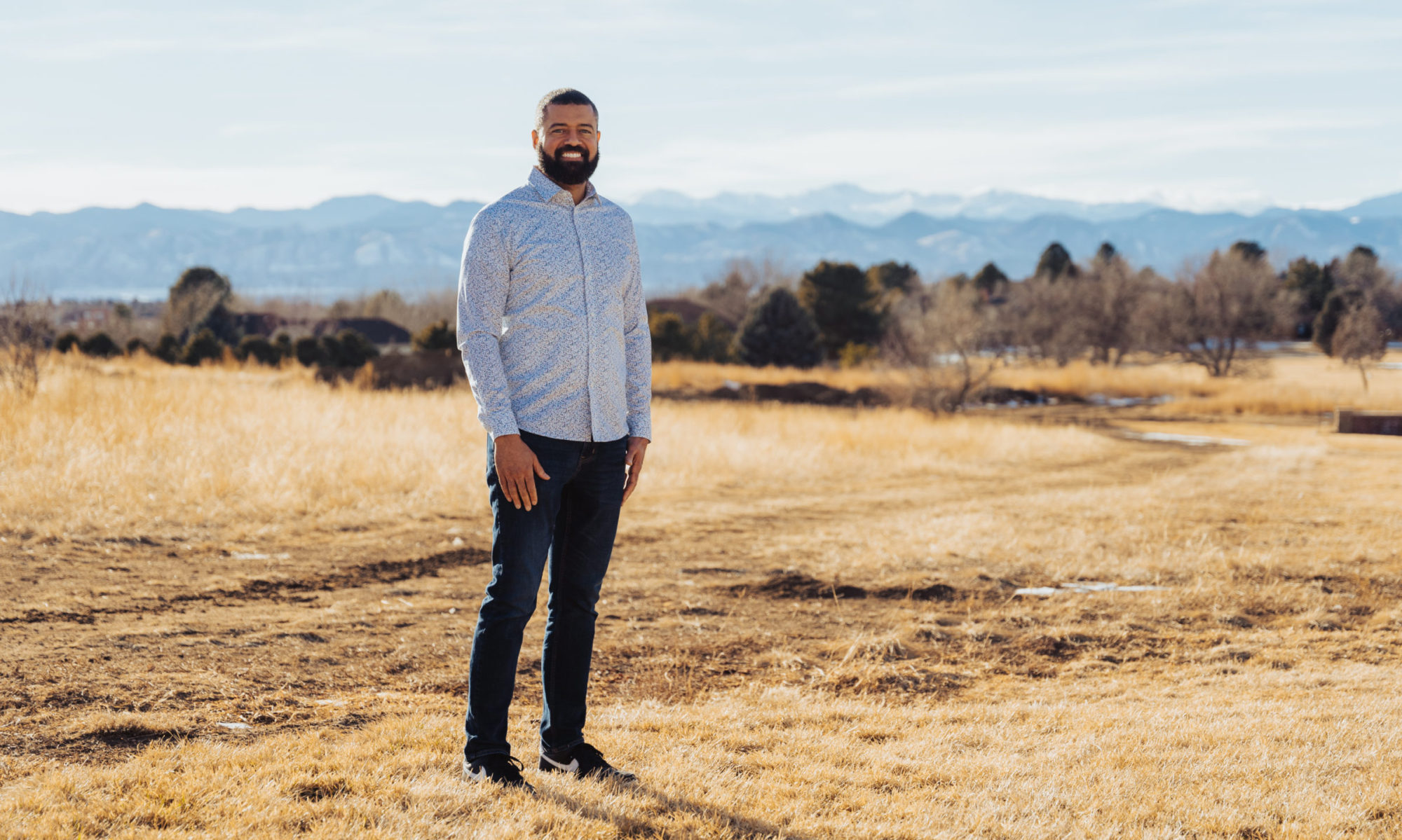
At First Glance – Read Exodus 11-15:21
The miracles continue! For the Egyptians you could say that the terror continues. The worst of the worst happens to each Egyptian household. Even for those who are in prison their firstborn dies. Even for those who are not directly connected to this battle between God and Pharaoh, there are consequences. Is this an example of communal sin? Slavery and oppression existed in Egypt. They’re infrastructure was built on the backs of slaves. They profit on free labor and the wealthy get filthy rich. But the Israelites are too numerous to control anymore because they have a God who has not forgotten them and is sympathetic to their plight. In fact, being more than sympathetic he fights for his people until the very end. All they must do is be still and let Him do His thing!
The final plague is devastating and affected each Egyptian household but it is not the capstone miracle in my opinion. This exodus is not complete until Pharaoh makes his exit. God hardens the hearts of Pharaoh and his army. This has to be a “God hardening” for me because what else would lead someone to pursue these people and their God out into the sea?
Don’t you see the ANGEL OF THE LORD! The pillar of FIRE!? The WALL of WATER on both sides!? What does that even look like?!
Terrifying, that’s what that looks like. Did he have people telling him, “don’t pay any attention to that cloud, or the strange autonomous fire, or the creepy thing with wings, the sea wall – those are just weather anomalies.” He must have been surrounded by “yes” men. It could be that the miracles may have looked less menacing and if not for faith in the existence of an all-powerful God could have been explained away with natural terminology. Either way, I don’t think they could have been ignored. I would not go so far as to describe what Pharaoh and his army did as courageous. Much like you would not describe a terrorist suicide bomber as such.
Again God seems to give reason for all the miracle mayhem in, “this is so that you will know that I am fighting for you and so that you will have one hell of story to tell your grandchildren, over dinner during a very strange 7-day festival, when you reach the promised land – you know, for those of you who make it.” Wait, what was that last part?
The Israelites saw what God did to the Egyptians and they feared the Lord. Please do not say that this was a reverent respect for God. A “Holy fear.” After what they saw, they wet their Egyptian cotton loincloths and believed. But that’s ok because they got bags of gold from all the sanctioned looting. Better yet you could call it Egyptian restitution for 430 years of slavery.
God fighting for your freedom, winning by knockout and you get all the prize money? Now that’s something to sing about!
A Deeper Look
The Israelites have been slaves for a very long time. When they leave Egypt as Fretheim puts it, the left “dressed out.” Their status has changed. They leave not as slaves, but as persons who have been raised to a new level of life by their God. Their raiment and jewelry are those of persons no longer bound but free (Fretheim 142). They were able to attain these treasures because God instructed them to plunder their captors as they exited.
Is it right and acceptable for them to have done this. Enns points out that for some “any material gain the Israelites might receive is a fitting reward for their years of abject slavery” (Enns Kindle Location 5041). Like Fretheim, Enns says the Israelites get to walk out standing tall. “The Israelites march out of Egypt through the front door, with dignity— not like dogs crawling through the back fence, but like God’s people” (Kindle Locations 5042-5043).
Upon leaving they receive new commands from God. They are to conduct a Passover festival annually. They are also to consecrate their first born to God. This is an everlasting reminder in Israel at what cost Israel’s firstborn were redeemed; it is seared into Israel’s memory forever (Fretheim 149). Enns says that Israel is to be redeemed of God. The Passover reminds us that the consecration of their firstborn requires redemption through the blood Jesus (Enns, Kindle Location 5132).
Miriam’s song is more than likely sung at the Red Sea but also was written down with the benefit of hindsight. “What I am suggesting is that the written version of the poem as we have it is the product of the mature reflection on the crossing of the sea from the point of view of those who have not only the Exodus but also the Conquest behind them. Moses and the Israelites did sing the Song at the Sea, but the inspired version of that song, the one that achieved canonical status, gives us, the readers of today, the added benefit of seeing how the significance of the Exodus was understood and celebrated by Israelites who lived sometime after the initial event itself” (Enns, Kindle Locations 6145-6149).
Exodus for Today
Egypt is the real enemy to God’s people, an enemy whom God has destroyed. And Israel should never forget that Egypt is the enemy of God – though, as was noted in 14:10-14, Israel has already forgotten and will forget again (Enns Kindle Location 6002).
Christ is the ultimate Israel. He went to the wilderness. He suffered the plague of sin. God crushed Egypt with an incredible miraculous display of power. Jesus crushed sin with triumphal victory over death. The Israelites were afraid and wanted to turn back to Egypt but God told Moses that He fights for them. All they need to do is be still and let him fight. We are not triumphal in our own rescue from Egypt because Christ did it all. We are to be still and accept that Christ took the fight to the enemy in the shame of the cross.
After being enslaved for 430 years they had learn to trust their abolitionist. After being enslaved by the enemy we must learn to trust our savior in freedom and choose not to be like the dog that returns to its vomit (Proverbs 26:11).
Exodus points ahead to God’s vision for all people. “The Exodus story is about more than the Exodus. It must be understood, in the words of Terence Fretheim, ‘in terms of the worldwide purposes of a Creator God who is about the business of setting a chaotic, oppressive world straight’” (Enns Kindle Locations 6188-6190).
Jovan preaches for the Littleton Church of Christ near Denver, Colorado. Visit here to listen to sermons preached by Jovan.
